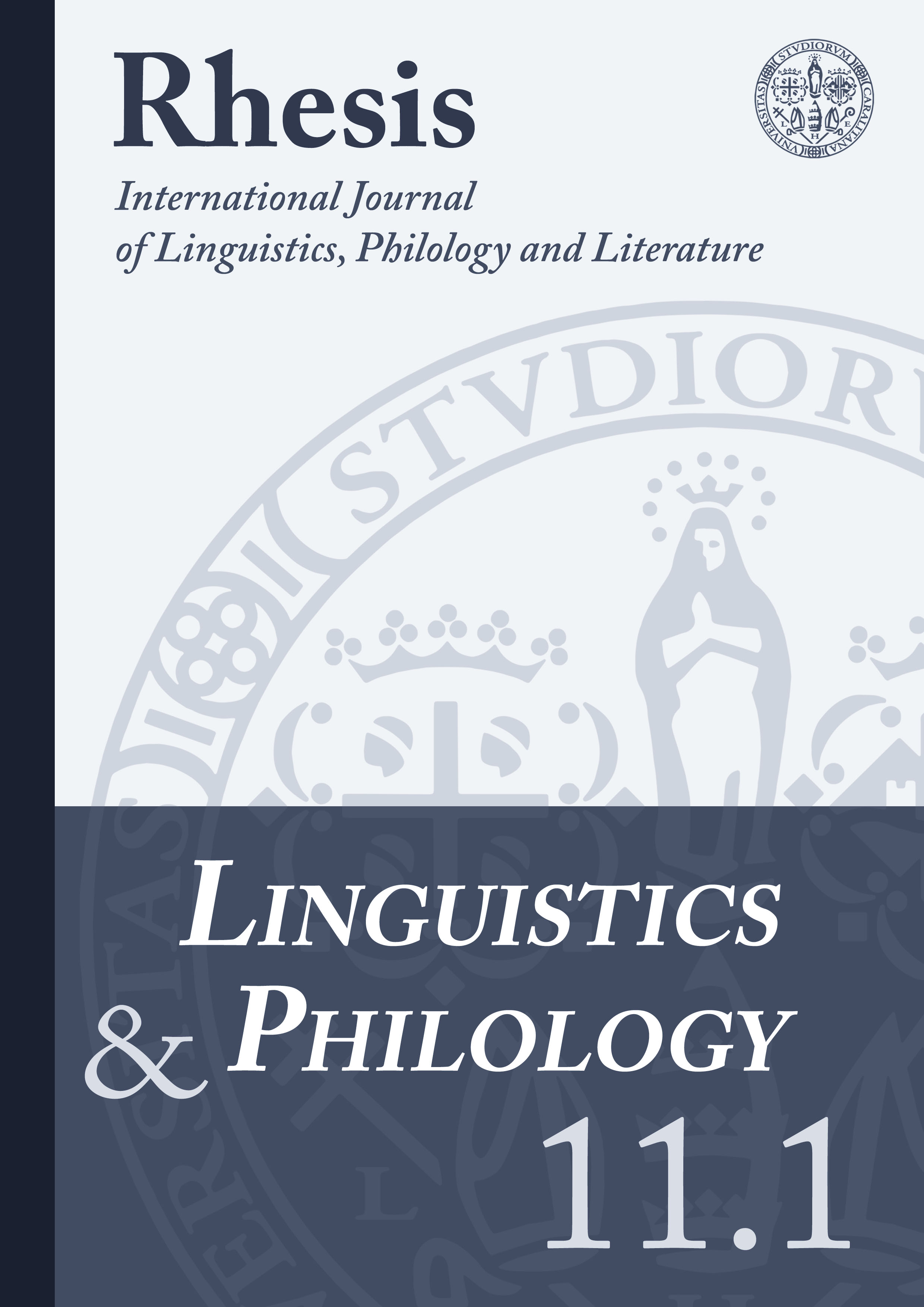La grande manipolatrice. Clitemestra e il dominio del linguaggio nell’Agamennone di Eschilo
Abstract
The character of Clytemnestra in Aeschylus’s Agamemnon is a perfect example of the relevance of persuasion and manipulation in tragic theatre, a genre which, since the introduction of the second actor, allowed the representation of contrasts and successful or unsuccessful attempts to overcome an opponent by persuasion. Through an astonishing mastery of many both male and female language forms, Clytemnestra, switching from transgressive usages to the appropriation of traditional feminine clichés, manages to dominate all the characters who face her in the play, and in particular Agamemnon, who is beguiled to the point that he enters his own house in a way that could give rise to human blame and divine φθόνος. After the murder, Clytemnestra also shows her skill in controlling different genres of male language in order to tackle the Chorus’s attempt to bring her to justice. Eventually, the murderer cunningly presents herself as a member of the Atreid family who had been hurt by an adverse daimon, in order to escape the hostility of the daimon itself.
Downloads
References
Battezzato, Luigi (2017), ‘Change of Mind, Persuasion, and the Emotions: Debates in Euripides from Medea to Iphigenia at Aulis’, Lexis 35, 164-177.
Budelmann, Felix; Easterling, Pat (2010), ‘Reading Minds in Greek Tragedy’, Greece and Rome 57, 289-303.
Buxton, Richard G. A. (1982), Persuasion in Greek Tragedy: A Study of Peitho, Cambridge, Cambridge University Press.
Dubischar, Markus (2001), Die Agonszenen bei Euripides, Stuttgart-Weimar, Verlag J. B. Metzler. Lloyd, Michael (1992), The Agon in Euripides, Oxford, Clarendon Press.
Medda, Enrico (2017), Eschilo. Agamennone, Roma, Bardi.
Quijada Sagredo, Milagros; Encinas Reguero, María del Carmen (eds.) (2013), Retórica y discurso en el teatro griego, Madrid, Ediciones Clásicas.
Quijada Sagredo, Milagros; Encinas Reguero, María del Carmen (eds.) (2017), Connecting Rhetoric and Attic Drama, Bari, Levante.



